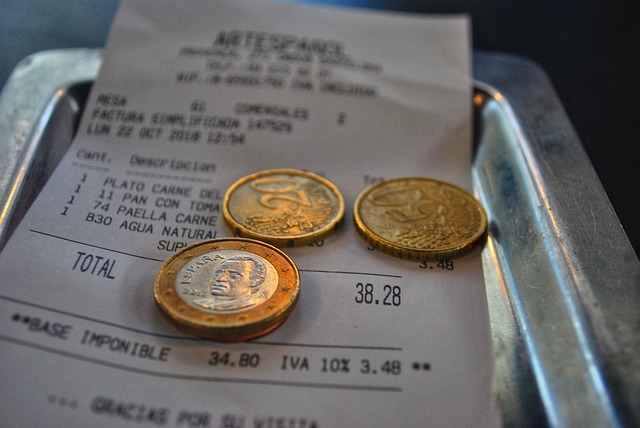Understanding Bitcoin inheritance is vital for modern legacy planning. When a loved one dies, their cryptocurrency holdings become part of their estate, requiring specialized inheritance planning. This involves creating a detailed will, establishing trusts, and consulting experts in inheritance tax planning near me to navigate complex federal and state rules. Securing legal documents, appointing trusted executors familiar with blockchain technology, and minimizing tax liabilities are key steps for managing Bitcoin inheritance. Professional consultation is crucial for seamless distribution of digital assets according to one's wishes.
“Navigating the digital estate of a loved one who held Bitcoin can be a complex task. This guide offers essential tips for inheriting Bitcoin, ensuring your peace of mind during an emotional time. We explore inheritance planning specifically tailored to this unique digital asset, from understanding the process to creating a comprehensive will and managing tax considerations. Discover how to securely distribute Bitcoin while respecting your loved one’s wishes, with expert advice on inheritance tax planning, available resources, and support near you.”
- Understanding Bitcoin Inheritance: A Unique Digital Legacy
- Estate Planning for Bitcoin: Creating a Comprehensive Will
- Tax Considerations: Navigating Inheritance Tax Laws
- Practical Steps to Secure and Distribute Bitcoin After Loss of a Loved One
Understanding Bitcoin Inheritance: A Unique Digital Legacy

Understanding Bitcoin inheritance is a unique aspect of digital legacy planning in today’s digital era. When a loved one passes away, their Bitcoin and other cryptocurrency holdings can form part of their estate—a significant change from traditional assets. This new landscape presents both opportunities and challenges for those left behind, especially if they’re not familiar with the world of crypto.
For inheritance tax planning, it’s crucial to consider the potential capital gains taxes that might apply when Bitcoin is inherited. Unlike tangible property, which has established appraisal methods, cryptocurrencies can be more complex. Seeking professional advice from financial or inheritance tax planning experts near you is essential to navigate these uncharted waters smoothly and ensure your loved one’s digital legacy is managed with care and in accordance with legal requirements.
Estate Planning for Bitcoin: Creating a Comprehensive Will

When planning for the inheritance of Bitcoin or other cryptocurrencies, estate planning is crucial. Creating a comprehensive will ensures that your digital assets are distributed according to your wishes after your passing. This process involves naming beneficiaries and specifying how much or what percentage of your Bitcoin they should receive. Remember that traditional wills may not adequately address the unique nature of cryptocurrency, so it’s essential to consult with professionals who specialize in inheritance planning and Bitcoin tax planning near me to ensure everything is handled correctly.
In addition to updating your will, consider setting up a trust for enhanced inheritance tax planning. Trusts can help shield your assets from high estate taxes and provide more control over when and how beneficiaries receive their Bitcoin inheritance. By combining robust estate planning with meticulous cryptocurrency management, you can secure the future financial well-being of your loved ones while minimizing potential tax liabilities.
Tax Considerations: Navigating Inheritance Tax Laws

Navigating inheritance tax laws is a crucial part of effective Bitcoin inheritance planning, especially when dealing with digital assets like cryptocurrency. In many jurisdictions, inheriting digital currencies may be subject to special rules or unique tax implications compared to traditional assets. It’s essential to consult with a financial advisor or attorney who specializes in inheritance planning near me to understand the specific regulations in your area.
They can help you create a comprehensive strategy that considers both federal and state inheritance tax laws, ensuring compliance while minimizing potential tax burdens. By proactively addressing these considerations, you can secure your Bitcoin inheritance and make sure that your loved one’s digital legacy is distributed according to their wishes.
Practical Steps to Secure and Distribute Bitcoin After Loss of a Loved One

When a loved one passes away, dealing with their digital assets can be an unfamiliar and complex process. Bitcoin, as a unique asset class, requires specific steps to ensure its secure inheritance and distribution.
First, obtain all necessary legal documents, including a death certificate and any relevant cryptocurrency wallets or access keys. It’s crucial to consult with a qualified professional for sound inheritance tax planning, especially considering the volatile nature of cryptocurrencies. They can guide you through the local laws and regulations, helping to minimize potential tax liabilities. Additionally, setting up a trusted executor who understands blockchain technology is essential for securely managing the Bitcoin inheritance and ensuring it’s distributed according to your wishes.
When dealing with the loss of a loved one, proper inheritance planning for digital assets like Bitcoin is crucial. By understanding the unique nature of Bitcoin inheritance, creating a detailed will, and considering tax implications, you can ensure your late relative’s digital legacy is managed securely and distributed according to their wishes. Remember, meticulous inheritance tax planning near me and beyond can make all the difference in preserving your family’s financial future in this evolving digital landscape.







